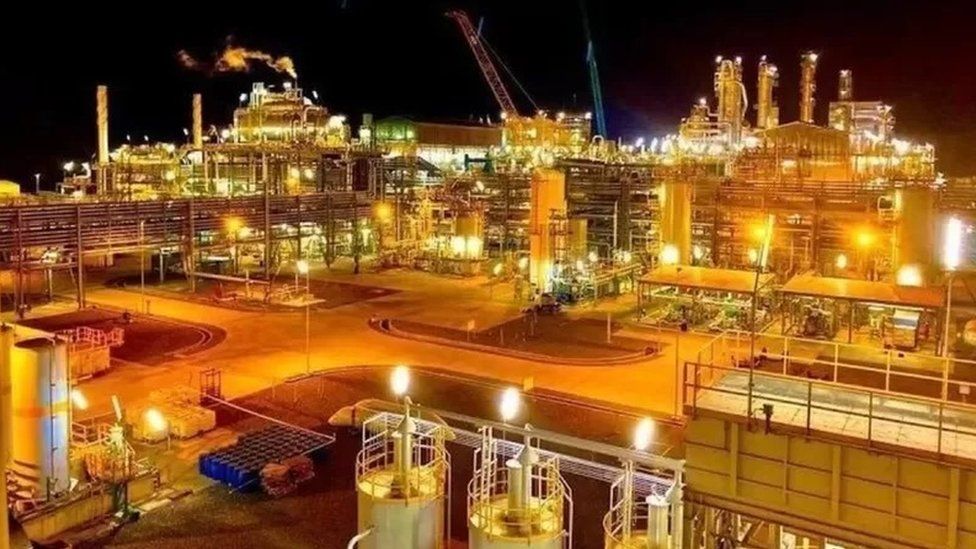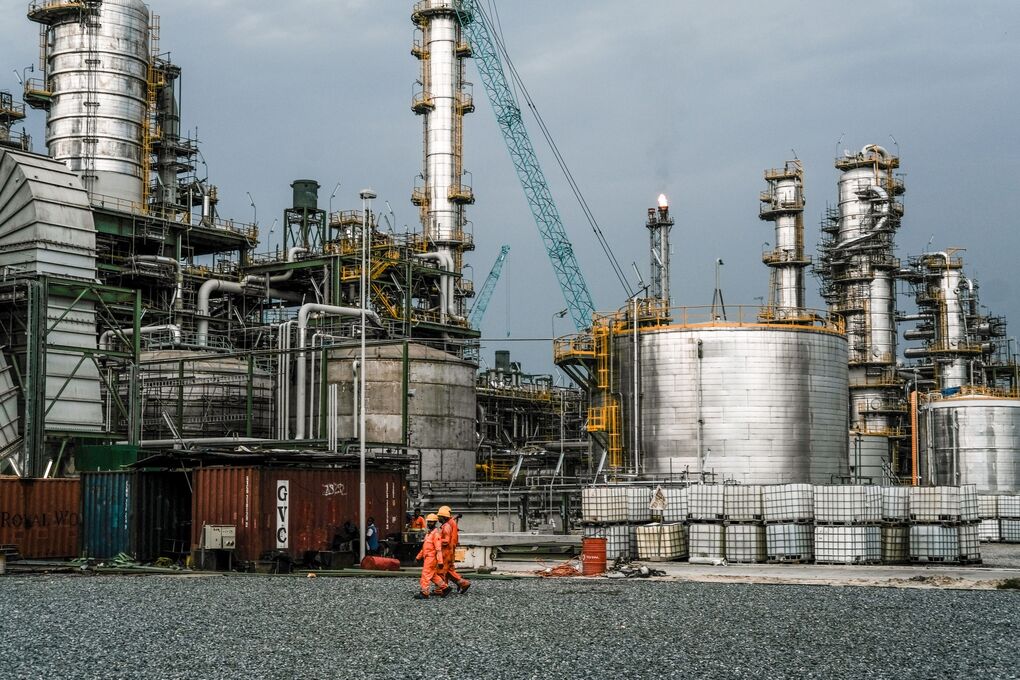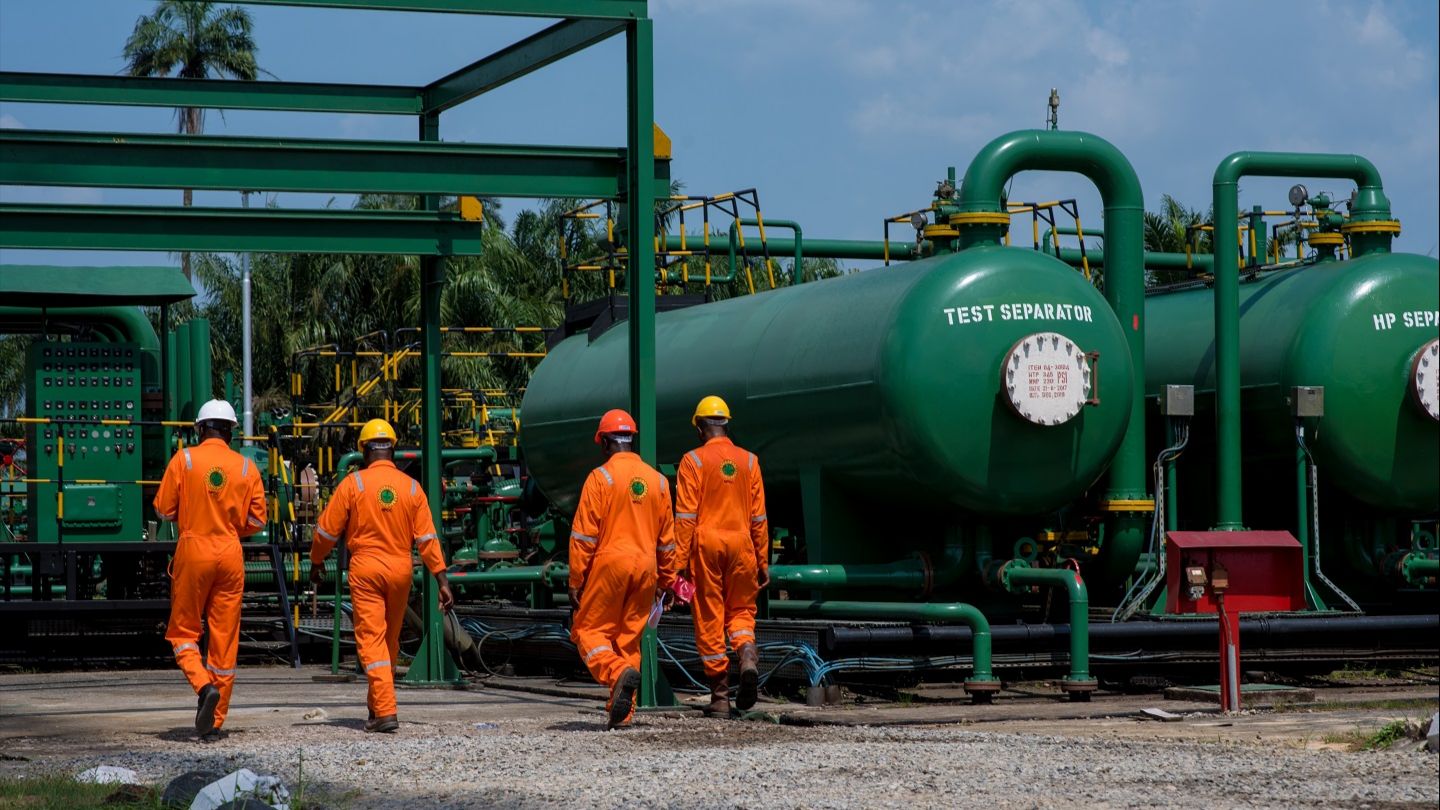Is Nigeria poised to redefine its energy landscape? The recent commencement of operations at the Dangote Refinery, coupled with ongoing efforts to revitalize existing facilities, suggests a pivotal shift in the nation's approach to oil refining and its broader economic prospects.
The narrative of Nigeria's oil industry is one of both immense potential and enduring challenges. As the thirteenth-largest crude oil producer globally and the foremost in Africa, Nigeria possesses a wealth of the essential raw material. However, the ability to refine this crude oil into usable products, such as gasoline, diesel, and kerosene, has been historically hampered by infrastructural limitations and operational inefficiencies. The nation has, for a long time, grappled with the paradox of being a major oil producer yet heavily reliant on imported petroleum products.
The Dangote Petroleum Refinery, located in the Lekki Free Zone near Lagos, Nigeria, represents a significant leap towards addressing this long-standing issue. Commissioned in May 2023 at a staggering cost of around $19 billion, this integrated refinery project boasts an impressive capacity of 650,000 barrels per day (bpd). Oil refining operations began in late December 2023, and the refinery commenced dispensing products to both local and international markets as of May 2024. The facility's pipeline infrastructure is, remarkably, the largest globally, spanning 1,100 kilometers. This ambitious undertaking promises to transform Nigeria's energy sector, potentially reducing the nation's dependence on imports and boosting its refining capacity significantly.
- Decoding Simp Meaning Signs And How To Avoid Being One
- Polar Sky Phenomena Crossword Clue Solution Guide Oct 6 2024
| Feature | Details |
|---|---|
| Name | Dangote Petroleum Refinery |
| Location | Lekki Free Zone, Lagos, Nigeria |
| Project Cost | Approximately $19 billion |
| Commissioning Date | May 2023 |
| Start of Oil Refining | Late December 2023 |
| Product Dispensing (Markets) | Local and International |
| Capacity | 650,000 barrels per day (bpd) |
| Pipeline Infrastructure | Largest in the world, 1,100 kilometers |
| Products | Diesel, Aviation Fuel, and other refined petroleum products |
| Significance | Potential to significantly reduce reliance on imported petroleum products |
For more details about the Dangote Refinery, please visit the official website: Dangote Group
Nigeria's journey with oil began in the 1950s, with the initial discovery of crude oil. Following independence in 1960, oil production gained momentum, setting the stage for the development of refineries and petrochemical plants. The federal governments strategy aimed at establishing a self-sufficient upstream and downstream sector. This initiative was critical to transforming crude oil into valuable products that could power industries, households, and transportation systems, therefore strengthening Nigeria's economy. Despite these efforts, the sector has faced many hurdles, particularly concerning underutilization and maintenance issues.
The importance of these refineries to Nigeria's economy cannot be overstated. They transform crude oil into essential products, serving as the lifeblood of various industries, households, and the transportation sector. However, the existing infrastructure has faced challenges, particularly with efficiency and output, which has led to inconsistencies in the supply of refined products and the nation's need to import. While several refineries exist, many have struggled with operational issues, leading to their underperformance.
- Joel Edgerton His Brother A Look At Their Careers
- Colorado Form Dr 0004 Your Guide To State Withholding Changes
Presently, Nigeria has four major oil refineries, but none are fully operational at the moment. These refineries, with the capacity to refine more than 400,000 barrels of crude oil daily, are crucial for meeting domestic fuel demands and lessening reliance on imports. However, due to various operational challenges, the output today is relatively low, around 70,000 barrels per day. This contrast highlights the urgent need for upgrades and better operational practices to maximize the refineries' potential.
The "Old Port Harcourt Refinery," Nigeria's first indigenous refinery, stands as a symbol of the country's early refining efforts. Built after the commercial discovery of oil in 1965 in Oloibiri (present-day Bayelsa State), it highlights the initial steps Nigeria took to harness its oil resources. The export of Nigeria's first crude oil cargo in 1958 marked the beginning of its involvement in the global oil market, cementing its place as a significant player in the industry.
The Department of Petroleum Resources (DPR) has outlined a list of private refineries with the necessary permits to operate in Nigeria. As of March 2021, the number of valid refinery project licenses further underscores the growth within the sector. This expansion reflects a concerted effort to increase Nigeria's refining capacity and reduce reliance on imported fuels, improving the nation's energy security.
A typical refinery is a complex production facility, comprised of chemical engineering unit processes and operators designed to convert raw materials into high-value finished products. These refineries are critical for Nigeria's oil and gas industry, especially as Africa's largest oil producer. The $19 billion Dangote petroleum refinery facility, with its 650,000-barrel-a-day capacity, is poised to considerably strengthen domestic petroleum production and contribute significantly to the energy sector.
| Refinery | Plant Capacity (BPSD) | Date of Commissioning |
|---|---|---|
| Warri Refinery | 125,000 | 1978 |
| New Port Harcourt Refinery | 150,000 | 1989 |
| Kaduna Refinery | 110,000 | 1980 |
| Old Port Harcourt Refinery | 60,000 | 1965 |
Source: Historical data
The Warri Refinery and Petrochemical Plant, and the Warri Refinery and Petrochemical Company (WRPC) play crucial roles in Nigeria's energy infrastructure. The Port Harcourt refineries, with an expanded capacity of 210,000 bpd, cemented their importance. These historical benchmarks highlight the continuous evolution and improvements in Nigeria's refining capabilities. Efforts have been made to revitalize and upgrade these facilities to reduce Nigerias reliance on imported petroleum products.
The success of the Dangote Refinery, and the revitalization of existing refineries, is crucial. It represents a potential turning point for Nigeria. By boosting domestic refining capacity, the nation can mitigate supply chain disruptions, stabilize fuel prices, and create thousands of jobs. This will also foster economic growth within the country. This is a necessary step toward achieving energy independence and promoting sustainable development in the oil and gas industry.


